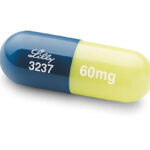Is Cymbalta Better To Take In The Morning Or At Night?

Virtually every patient wants prescriptions to be effective. Some medications work more effectively when taken at specific times. When getting a new prescription, the pharmacist is tasked with reviewing important information with you regarding medication management. Among the things he or she may cover is when to take medication. Just like certain prescriptions should be taken with food or with a full glass of water for best results, timing also matters when it comes to taking your daily medications.
The best time to take medication may vary depending on the drug, but if your pharmacist says to take your dose at the same time each day, it’s best that you do so.
What is Cymbalta?
Cymbalta is a brand of duloxetine, a selective serotonin, and norepinephrine reuptake inhibitor antidepressant (SSNRI). Duloxetine affects chemicals in the brain that may be unbalanced in people with depression. Cymbalta is used to treat major depressive disorder in adults. It is also used to treat general anxiety disorder in adults and children who are at least 7 years old.
Cymbalta is also used in adults to treat nerve pain caused by diabetes (diabetic neuropathy), or chronic muscle or joint pain (such as low back pain and osteoarthritis pain). Cymbalta is also used to treat fibromyalgia (a chronic pain disorder) in adults and children at least 13 years old.
How should Cymbalta (duloxetine) be taken?
Duloxetine comes as a delayed-release (releases the medication in the intestine to prevent break-down of the medication by stomach acids) capsule to take by mouth. When duloxetine is used to treat depression, it is usually taken once or twice a day with or without food. When duloxetine is used to treat generalized anxiety disorder, the pain of diabetic neuropathy, fibromyalgia, or ongoing bone or muscle pain, it is usually taken once a day with or without food. Take duloxetine at around the same time(s) every day. Follow the directions on your prescription label carefully, and ask your doctor or pharmacist to explain any part you do not understand. Take duloxetine exactly as directed. Do not take more or less of it, take it more often, or take it for a longer time than prescribed by your doctor.
Typical starting doses of Cymbalta (duloxetine) are 30 to 60 mg by mouth once daily. Swallow the delayed-release capsules whole; do not split, chew, or crush them. Do not open the delayed-release capsules and mix the contents with liquids or sprinkle the contents on food.
Your doctor may start you on a low dose of medication and increase your dose after one week.
What is the best time to take Cymbalta (duloxetine)?
The best time to take Cymbalta (duloxetine) is in the evening because if taken in the morning, it can cause sleepiness or may affect your ability to make decisions, think clearly, or react quickly. You shouldn’t drive, use heavy machinery, or do other dangerous activities until you know how it affects you. Try to keep strict sleep hygiene practices; for example, keep to a fixed sleep and wake up schedule, remain active during the day, avoid daytime naps, limit or stop caffeine, nicotine, and alcohol intake, and avoid large meals or beverages close to bedtime.
However, insomnia is a common side effect experienced by some people who take Cymbalta (duloxetine). Around 10% or more of patients taking Cymbalta (duloxetine) report insomnia. Insomnia can mean difficulty falling asleep, difficulty staying asleep, waking up earlier than desired, or waking up and still feeling tired. If you fall under this category of patients, your doctor may advise you to take this medication in the morning to enable the body to clear out the medication before you go to bed. About 50 percent of the duloxetine will have left the body within approximately 12 hours, with a range between 8 and 17 hours. For more information read How to Sleep While Taking Cymbalta





